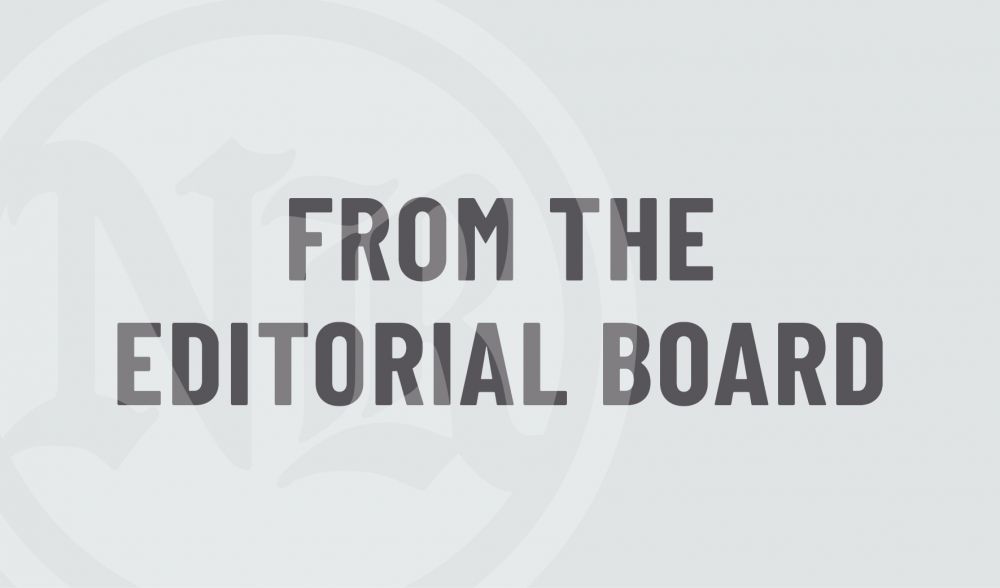Transportation bill serves as starting point on rough road

Until Sept. 29, Oregon hadn’t enacted a major new transportation funding package since 2017. In the world of politics and public policy, that’s a veritable eon ago.
Over the course of the intervening years, the cost of road and bridge construction has soared. So has the median motor vehicle mileage, cutting ever more deeply into the gas tax revenue supplying the bulk of the state’s transportation funding.
An escalating portion of today’s highway fleet is either partially or fully powered by electricity instead of gasoline or diesel fuel, but the electric segment is still going entirely untaxed. What’s more, the weight-mile tax paid by truckers is both overly complex and badly out of balance.
As a result, it’s become obvious to virtually everyone that the state’s transportation funding system needs an overhaul serving to deliver better funding on a fairer basis.
The state’s lopsided Democratic majority was well aware of this going into the regular session. However, complacency and hubris led it to wait until the dying days to unveil at 10-year, $14.6 billion proposal it knew would stir ardent opposition across the aisle.
Historically, Oregon transportation packages have always demanded bipartisan support. But overconfident legislative leaders refused to welcome input from the Republican caucuses in any meaningful way — until, that is, they found themselves critically short of both votes and time. By then, furious Republicans were unwilling to stand even for passage of an $11.7 billion fallback measure.
In the end, leadership had to settle for a $4.3 billion stopgap package relying entirely on votes from Democrats, one of whom had to rise from his hospital bed. To say the least, it was neither a good look nor a good result.
Now it’s the GOP’s turn to don the black hats and play the role of bad actors. Smelling blood in the political waters, Republicans are threatening to subject the package to a statewide referendum next year, knowing its defeat would pose a grave danger to Oregon’s economic engine and livability quotient, in addition to restoring deep trucker vs. motorist and gas vs. electric inequities.
Engaging in denial for cynical political advantage isn’t going to help Oregonians get roads built and bridges replaced. For everyone’s sake, we hope it won’t come to that.
Rep. Cyrus Javadi of Tillamook put it this way just before switching his political affiliation from Republican to Democratic:
“Roads don’t fix themselves. Neither do bridges when they fall into rivers. And our transportation system is staring into a fund hole big enough to swallow Highway 6 whole.”
The key elements of the sharply trimmed package finally passing on the third try are:
n A 6-cent gas tax hike to 46 cents a gallon.
n An increase in the public transit payroll tax from 0.1% to 0.2%.
n Increased title and registration fees, with surcharges for fully and partially electrically powered vehicles.
n Compression of trucker weight-mile classifications from 30 to 10, reducing aggravating complexity.
n Reduction of some of trucker weight-mile burden in the interest of fairness.
For the most part, Democrats found that a step in the right direction, but probably two or three steps short of fully addressing Oregon’s road-funding inequities and inadequacies. But the blame ultimately falls to members of their own caucus, unwilling to take the heat for anything more ambitious.
Republicans almost uniformly contended the state could simply cut expenses enough to match revenue, ignoring the fact revenue has been falling steadily for years and promises to continue doing so.
No one taking a serious look could possibly buy into that. Apparently, they are counting on voters to forgo such a look.
Many of them are also engaging in hyperbolic scaremongering over the 6 cent gas tax hike. Maybe they should stop and consider this:
The motorist driving 10,000 miles a year at 20 miles per gallon spends $200 a year paying the current 40 cent gas tax. If he ends up switching to a car that gets 40 miles per gallon, typical as people periodically trade up these days, he would pay only $100 a year at 40 cents and $115 at 46 cents, pocketing a substantial savings either way.
So, no, the sky is not falling. The net impact, as mileage continues to climb, is actually decidedly positive, even with a modest tax bump.
Sarah Iannarone, who heads the Association of Oregon Counties, perhaps best represented our view when she warned, “Don’t call it a package. This deal kicks the transportation funding can down the road while leaving the most vulnerable Oregonians behind.”
Necessary? Yes. Adequate? No. It doesn’t actually move the dial enough.
And the way the bill was handled was even worse than the bill itself.
The pre-passage path represented Democrats at their worst. The post-passage path promises to represent Republicans at their worst, which may be what led Javadi to jump ship.









Comments
Bigfootlives
So republicans at their worst is forcing this travesty before the voters so we can actually have a say for once? I agree, I can see why Javadi slimed his way over to the democrats. Good riddance.
Don Dix
"Today, because Oregonians have come together, we will be able to have an Oregon Department of Transportation and also city and county transportation crews and transit available for Oregonians across our state," said Gov. Tina Kotek, about passage of the transportation bill.
The testimonies from citizens around the state numbered between 3800 and 5000, depending on the source. But 95% of those testimonies were in opposition to the bill. What?
So the governor apparently believes "Oregonians" are only those who supported this bill -- all 18 of them!